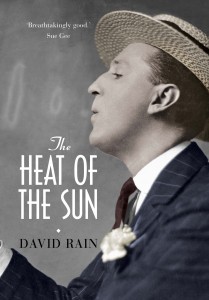 Published by Atlantic Books 10 July 2012
Published by Atlantic Books 10 July 2012
286pp, hardback, £12.99
Reviewed by N.J. Cooper
Writers have always used existing stories as the basis for new work and some novelists have looked to other media as inspiration for their fiction. Here David Rain takes Puccini’s Madama Butterfly and imagines the life of her son, Trouble (Dolore) Pinkerton, after her death. We meet him first at one of those brutal, supposedly character-forming boarding schools familiar from fiction, through the eyes of the narrator, Woodley Sharpless, son of the late American consul in Nagasaki.
At this stage, Sharpless has no idea of the connection between them. He has struggles of his own at school, being considerably more sensitive than most and quietly heroic in his stance against the bullies. He also has trauma in his past, having seen his father killed before his eyes in Paris. Two days later he himself was victim of a road accident and now walks with a stick.
Trouble appeals to him at once: ‘Often, in times to come, I would wonder how to describe those eyes, so peculiar, so immoderate, beneath the blond sweep of hair. They were not blue, not black: they were violet.’ Trouble sings beautifully, is extremely clever, and doesn’t really fit in anywhere.
Sharpless is aware of Pinkerton’s father, now a senator, and his powerful ‘mother’, Kate, herself a daughter of the political elite. The two boys’ lives were connected before they were born and they remain enmeshed for ever. After they leave school, they encounter each other at high society New York social events, more louche affairs elsewhere, during the Second World War at Los Alamos, and then back in Nagasaki after the detonation of the atom bomb.
Rain states one of his themes at the start of the novel: ‘Condemnation like buckshot spluttered in all directions. Some directed their greatest outrage at B. F. Pinkerton; others, at B. F. Pinkerton II… What chance had the boy? With his blond American looks, Trouble could hardly have known he was half Japanese, the son of a geisha girl who had killed herself for love of his faithless father. The truth might have devastated him at any time; in the event, it was kept from him for so long that, when he learned it, he could hardly help going a little mad…’
But the underlying theme is a lot less bleak. While the novel traces the links and enmities between Japan and the United States through the first half of the twentieth century, Rain shows, in subtle and carefully colourful prose, how clinging to old stories of victimization cripples us and the only thing that lasts – or matters – is love. This is a skilful, imaginative, and often moving development of the Butterfly story.
